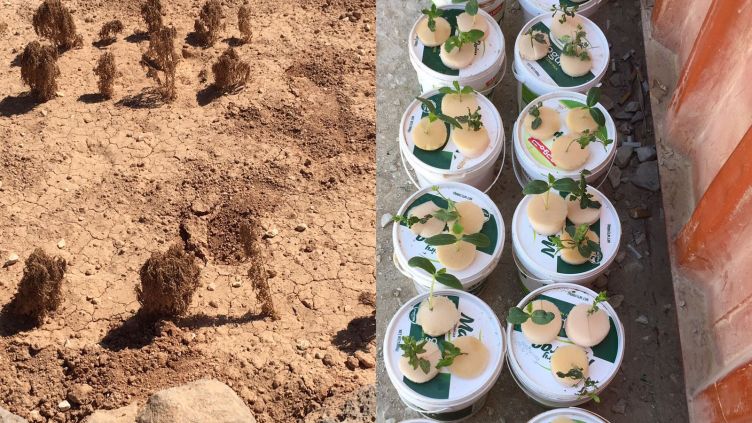Here at the Zaatari refugee camp in Jordan, experts from England's University of Sheffield and the United Nations teach Syrian refugees sustainable farming.
在约旦的扎塔里难民营,来自英国谢菲尔德大学和联合国的专家们在教叙利亚难民可持续农业。
Hani Naser s head of social service projects for the United Nations High Commissioner for Refugees.
汉尼·纳西尔时联合国难民事务高级专员办事处主任。
The UNHCR always tries to implement ideas that help the local Syrian community. The soil in this camp is not suitable for agriculture
联合国难民署总是试图实施有助于当地叙利亚社区的想法,这个营地的土壤不适合耕种
so we decided to experiment with new technologies. Refugees can use here or when they return.
所以我们决定尝试新技术。难民可以在这里或返回时使用。
Refugees learn how to make the most of limited resources through hydroponic farming where cups without soil hold seeds and sit in pipes with flowing water.
难民们学习如何通过水培农业,充分利用有限的资源,在没有土壤的杯子里装种子,并将杯子放在有流动水的管道里。
Syrian refugee Hassan Jildeh has started living in this camp in 2012.
叙利亚难民哈桑·吉尔德从2012年开始住在这个难民营。
He says the hydroponic process yields quality crops.

This project saves water and allows us to become self-sufficient in crowded or small spaces.
这个项目节约用水,使我们能够在拥挤或狭小的空间里自给自足。
The produce is 100 healthy, natural and pure without chemicals or hormones.
农作物百分百健康、天然、纯净,不含化学物质或激素。
Ahmad Zoubi lives in the camp with his wife and six children. He says he's happy returning to his old career as a farmer.
艾哈迈德·祖比和他的妻子,六个孩子住在营地里。他说他很高兴重新做回农民。
I love working on this project because I enjoy farming. It is technologically advanced and the process is clean.
我喜欢在这个项目上工作,因为我喜欢农业,技术先进,工艺清洁。
Traditional agriculture is full of mud and sand. This is just water. We come clean and we leave clean.
传统农业充满泥沙,但这只是水,出来进去时都很干净。
The UNHCR says this hydroponic system uses 70 to 80 percent less water than traditional methods,
联合国难民署说,这种水培系统比传统方法少用70%到80%的水,
good for a country facing water shortages and a camp home to nearly 76,000 refugees, more than half of whom are children.
对于一个面临水资源短缺的国家和一个收容近7.6万难民的难民营来说,这是件好事,难民营中一半以上是儿童。
Arash Arabasadi VOA news Washington
阿拉士·阿巴沙堤,VOA新闻华盛顿报道













